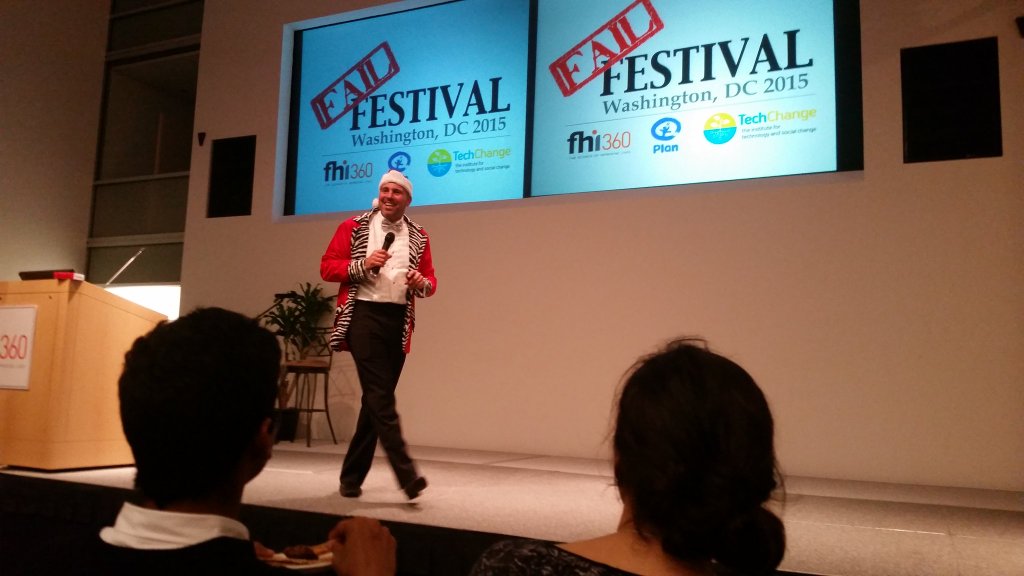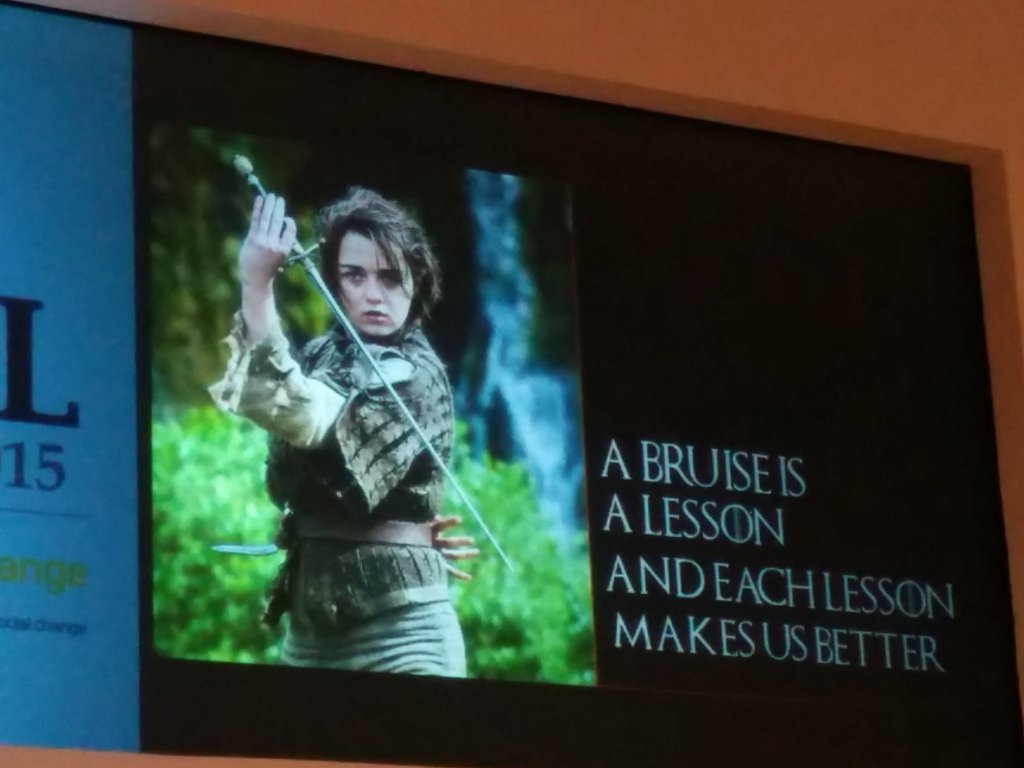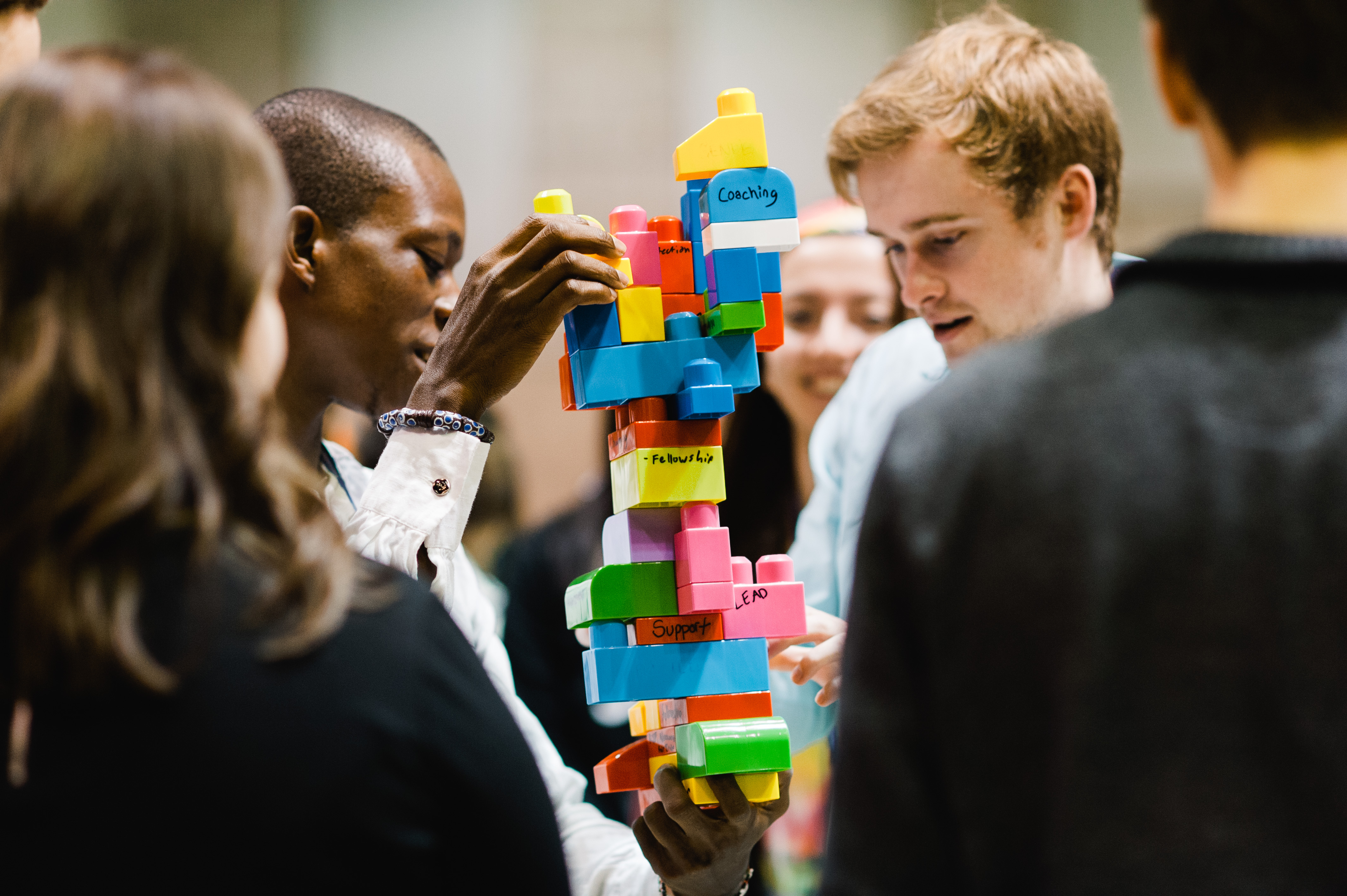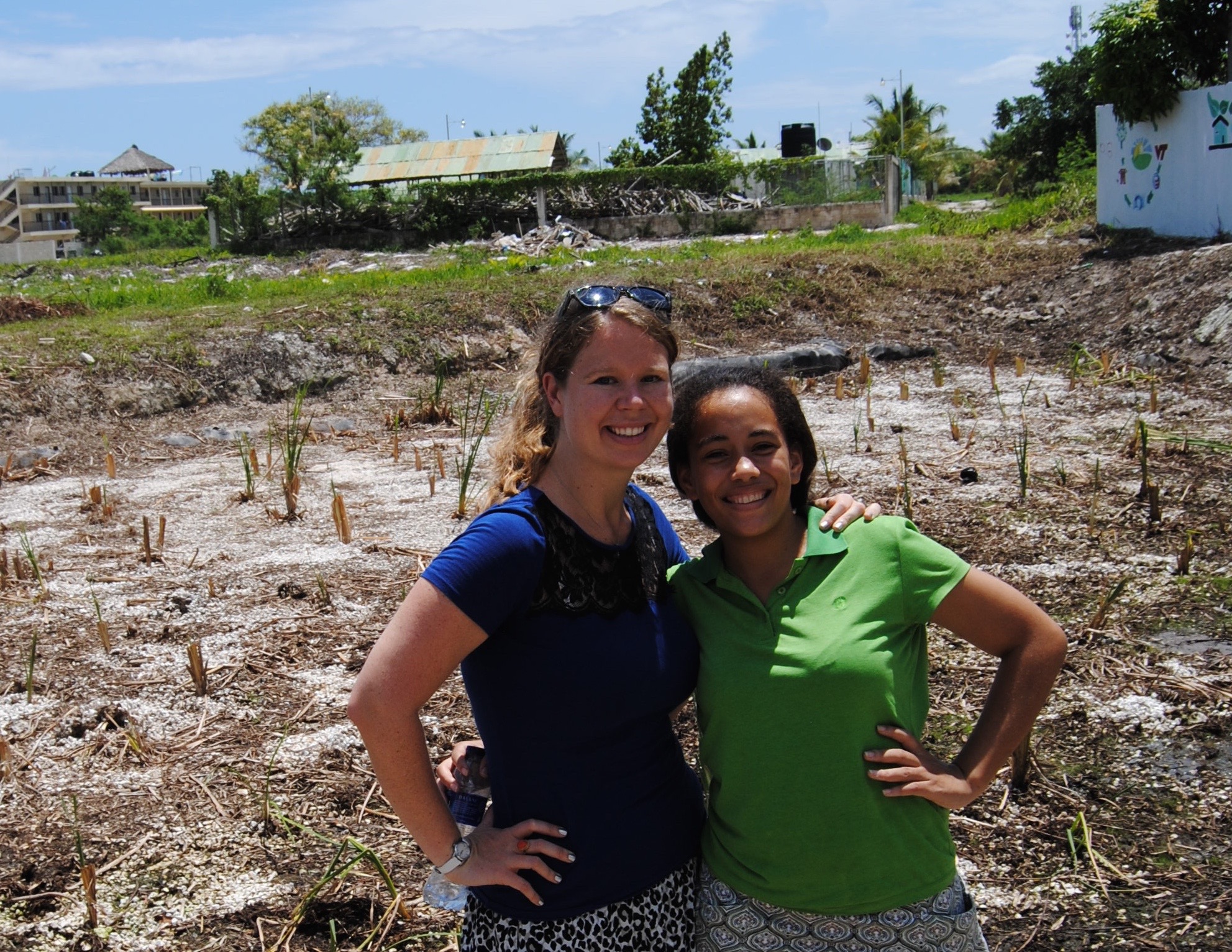Goodbye Benevolent Savior; Hello Flawed Altruist
The narrative of a brave white savior swooping in to the developing world and saving the needy is dead. Or, at least, it’s no longer welcome.
Take Louise Linton’s recent account of her gap year in Zambia, which appeared in both book and article form this last spring. Linton’s account of a stereotyped African jungle—with lions and elephants and malaria, oh my—and “a smiling, gap-toothed child with HIV” beside dramatic rebel violence sparked a wave of #LintonLies hashtags on Twitter. Eventually, Linton pulled her memoir from publication.
Tearing down the old narrative only takes us so far. Sure, we’ve pulled back the curtain on charity, like Dorothy did to the great Wizard of Oz, but now we must take a good look at the man behind the curtain.
Charity has entered an age of introspection.
Facing Failure

Last December, Wayan Vota stood on a small stage in a Washington D.C. office building, sporting a sequined Santa hat and a faux zebra-cuffed jacket. Before him sat 300 development workers and consultants; behind him was a giant picture of the Hindenburg zeppelin, engulfed in flames.
Vota hosts a FailFest every year, in the hopes of breaking the taboo on what he calls philanthropy’s f-word.
It takes a lot of coaxing. There are the noise-makers and beach balls, the open bar and buffet, the clubbing music and glow sticks, even a Mardi-Gras themed Christmas tree—all to comfort a room of people who willingly stride into conflict-ridden, disease-stricken, impoverished communities, but who can’t quite say the word failure.
At FailFest, the word is thrown around with as much abandon as the beach balls.
“The idea here,” says Vota, “is that we really should be honest about our failures. We should talk about them openly and accept them as the normal course of international -development.”
Unlike in business, development failures can quietly bulldoze their victims with few—if any—financial repercussions to the funding organization. They can manifest months or even years after volunteers have left. Often, failure is only apparent when searched for, and that can be terrifying.
Last month, I visited Verón, a coastal community in the Dominican Republic. I served there as a US Peace Corps Volunteer from 2011-2013, pioneering—with a ton of help—the first public wastewater-treating wetland in the country. The last time I saw the system, I could stand on my tiptoes and my fingers still didn’t reach the top of its plants. In my memory, that wetland was a stellar example of electricity-free, plant-driven, optimistic thinking.

I was afraid to see what had happened to it. I had invested years of my young life, pounds of Caribbean-induced sweat—much of which came from my bout with dengue—into the Peace Corps, and my ego was on the line. More importantly, so was the water quality of hundreds of households.
It can be tempting to live in denial, when given the chance. It is not because development and charity workers are imperialist monsters that we become blind to failure: it is because we are human.
Facing failure—heck, even facing the possibility of failure—takes courage. But doing so can break open exciting new possibilities for the future of volunteer work.
Letting Go of the “Us-First” Mentality
“There are patterns,” says Boris Martin, CEO of Engineers Without Borders (EWB), Canada.
Martin is a young-faced, thoughtful man with a delightful laugh. The organization he heads—a coalition of students, engineers and volunteers working on social innovations in Canada and Africa—has been publishing annual failure reports since 2009.
Each report includes case studies of EWB projects and strategies that have failed. While their simple publication earned praise from donors and launched the website www.admittingfailure.com, the greatest benefit of the reports, according to Martin, is that they can be analyzed.
“The failure reports were an outgrowth of a learning culture,” Martin says. “Now they’ve become a driver of [learning].”

Many failures in the reports stemmed from putting the volunteer—not the community receiving the volunteer—at the center of EWB’s strategy. It’s a mistake Martin himself made, while working with farmers in Burkina Faso from 2007-2010.
“I wanted to matter,” Martin says. “My question was, ‘Given that I’m one volunteer placed in an organization, how can I make the best of my time?’ It started with ME; it started with MY contribution.”
That kind of question, Martin says, portrays an underlying narrative of Us First. The real question, he says, isn’t “How can I help?” but “What would be helpful?”
This shift in questioning has changed the way EWB Canada operates. For one thing, they don’t limit themselves to sending Canadians overseas—often, EWB chapters invite engineers from Ghana and Uganda to Canada to problem-solve Canadian issues.
In a similar vein, the organization Ghana Think Tank studies issues in Europe and America—like gentrification—by assigning them to focus groups in developing countries. Their tagline is “Developing the First World.”
When working abroad, EWB focuses on local organizations, providing seed funding—and yes, volunteers—as those organizations request them. Like discussing failure, abandoning the “Us First” mentality takes courage. The hardest part of volunteering overseas isn’t giving up hot showers and WiFi; it’s giving up egos.
Once we can do that, we see what we can really contribute.
Recognizing What We Offer

On September 9, 2016, Desire Suero Mateo—who I first met as a 13-year-old girl in my Peace Corps youth group—graduated high school an award-winning, self-assured young woman. The next day, she walked with me to the wetland I was afraid to visit.
The plants were tiny stubs, stunted memories of the greenery I had last seen. Key members of the water committee I had worked with had abandoned the system to disrepair. Many residents weren’t paying maintenance fees.
But don’t be fooled: this system is a triumph.
The place had been recently cleaned. Two men were sifting through piles of papers, discussing next steps. A new water association had formed—with my former landlord as its president—with the plan of persecuting those who didn’t pay for water services, reinstating maintenance teams with new salaries, and digitizing records in case leadership were to change again. The water leaving the system was clean.
My greatest fear—seeing a broken system—was so short-sighted. As Wayan Vota and Boris Martin can attest, failure is often just a first step.
Sure, I played a role in launching this system. But now it’s Desire, bringing her unique computing knowledge to digitizing records, playing a role in keeping it going. Before I left, she slipped me a note that said, “I feel more mature now, capable of overcoming challenges, and so lucky… for our friendship that spans the world.”
The new narrative of volunteering includes courage, failure, broken egos and friendships that cross continents. If you ask me, the old narrative may be dead, but for the first time, we’ve found one that’s truly alive.
Fail Festival 2016 will take place on December 1st.
Sabine Bergmann is the Managing Editor of the Adventure Collection; you can read her work and news of her upcoming book, “Jaded Altruism,” at www.sabinekbergmann.com.
Read Ethical Traveler's Reprint Policy.
